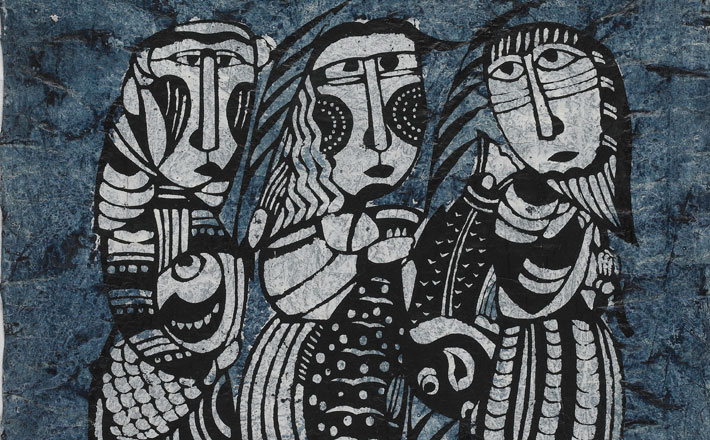Commentary on Mark 1:14-20
Jesus begins his ministry by proclaiming the “good news” of the gospel, which is that “the time is fulfilled and the kingdom of God has come near” (Mark 1:15).
Jesus’ coming was the “fullness of time,” because he is the messenger promised in the Old Testament (Galatians 4:4, Ephesians 1:10). Jesus repeats the message of John the Baptist, “Repent and believe in the good news.”
The emphasis of Mark’s gospel is that Jesus’ coming is the gospel, the “good news,” a term that in the first fifteen verses of the gospel occurs three times.
Since last Sunday’s story is from the Gospel of John, we don’t know the exact sequence of that text with this one from Mark, but the theme is the same. Today’s text continues the story from last Sunday, that is, the beginning of Jesus’ ministry as he calls his first disciples. Last Sunday we heard Jesus called Philip and Nathanael. In today’s story he calls four fishermen at the Sea of Galilee — Simon Peter, Andrew, James and John.
Once again we don’t know what there was about Jesus that led Simon, Andrew, James, John, and others to leave their homes and families to follow Jesus. Did they know him already? Or was this their first contact with him? In any case there was something remarkably compelling about Jesus to cause these and others to follow him into an uncertain future. The astonishing feature of the story is that they followed Jesus with no idea of where it would lead.
We know very little of the background of any of the disciples whom Jesus calls. The four in today’s story were fishermen. Matthew was a tax collector (Matthew 9:9). What had the other seven done before Jesus came into their lives? We don’t know.
As far as we can tell, the twelve persons Jesus called to be his companions were ordinary men. As far as we can tell, Jesus didn’t do background checks to determine IQ levels, financial acumen, professional skills, or temple education. He picked people probably much like you and me. Furthermore, his disciples were anything but perfect. Many times they misunderstood him. They often hesitated to follow him. Judas betrayed him and Peter denied him.
But these would be the persons who would continue Jesus’ work on earth after he left — ordinary people, like you and me. They were called.
Furthermore Jesus’ first disciples were “northerners,” from the northern province of Galilee. The capital of Israel was Jerusalem in the former southern kingdom, the religious center with the temple. It is no wonder that Jesus was greeted with such skepticism when he travelled to Jerusalem from his home in Galilee with his Galilean friends. The religious leaders in Jerusalem naturally considered Jesus an “outsider.”
As far as we know, every one of the disciples was chosen and called personally by Jesus. We believe that God calls each one of us. God not only calls us to follow Jesus, but also calls us into the fields and careers of our lives. We often speak of “God’s call” too narrowly, as if God “calls” people only into ordained ministry. That is true: God calls people to be pastors and church workers. But God’s call is not limited to clergy. God calls every single one of us.
In the Middle Ages the clergy was considered a higher status of Christian than laypersons. They had their own regimen of frequent daily worship that laypersons didn’t have. They had church rules to follow, which laypersons didn’t have. They usually lived in communities — monasteries and convents — unlike laypersons.
The Reformation eliminated those distinctions between clergy and lay by affirming that God calls everybody. The word for this call to everyone is “vocation,” from Latin vocatio, “calling.” Everyone has a station in life, probably several stations in how society functions, and this “vocation.” Every job that works to build up and maintain society is a calling — teacher, insurance salesman, car mechanic, politician, etc. We also have callings within family structures — mother, father, aunt, uncle, child, etc. We serve God in these family callings as well.
A friend of mine is a junior high school teacher. Since he was active in his congregation as a boy, some of his relatives urged him to consider becoming a pastor. He told his own pastor that he felt no calling to be a pastor but felt God wanted him to be a school teacher. His wise pastor told him to follow his calling, and he would be serving God as well in a school room as in a pastor’s office. That pastor understood what it meant to follow God’s call in one’s vocation.
The Old Testament lesson from the book of Jonah is also a story about “calling,” but with ironic twists. Jonah is called to proclaim a message to people he doesn’t like — a message he hopes will not be accepted. After trying unsuccessfully to avoid his calling, he finally arrives in Nineveh and delivers the shortest sermon in the Bible, an eight-word threat of destruction. To his dismay the sermon is effective. The book of Jonah ends as God makes clear to Jonah that mercy is for everyone who repents.
Jonah’s call included the message he was to deliver, but in today’s gospel the four fishermen are called with no further instructions whatsoever. They are called to a totally uncertain future and would surely have been scared out of their wits had they known what lay in store for them.
God’s call is always into an uncertain future. When we enter into our callings we have no idea how it will all end up. We choose our careers and jobs hoping that we can use the gifts and talents God has given us, but there are no guarantees.


January 25, 2015